|
As part of the graduating class in 2009, Firdaus Husni completed her Bachelor of Laws at the Faculty of Law, University of Malaya (‘UM’). After completing her pupillage at Messrs Raja, Darryl & Loh (‘RDL’), she joined Messrs Chooi & Company + Cheang & Ariff (previously Messrs Chooi & Company) and rose through the ranks until she assumed the position of Senior Litigation Associate. Following that, she had a stint as a Litigation Associate at Messrs Daniel & Wong before landing her current role as the Chief Human Rights Strategist at the Malaysian Centre for Constitutionalism and Human Rights (‘MCCHR’). Within the span of her career, Firdaus has curated an extensive portfolio, particularly in civil rights and activism. Apart from her active role within the Malaysian Bar Council (‘Bar Council’), she has also been heavily involved in international symposiums, legal research and volunteering, to name a few. Through this interview, it is apparent that Firdaus’s active avoidance of stagnancy and comfort zones stands tall as a testament to her valiant and inspiring nature. How would you describe your time at the University of Malaya Law Faculty? ‘Well, it was competitive, but I made many wonderful friends that became my support system throughout the four years. My time at the University of Malaya certainly broadened my horizons as I was able to have open and honest conversations about race, religion, human rights issues and politics.’ With the onerous reputation preceding UM, Firdaus’s first steps in the Faculty were rather timid as she harboured reservations towards her path. Although the reputation remains true to a certain extent, she was fortunate enough to band with like-minded individuals, who grew to become some of her closest confidants. Comparing the atmosphere of her previous institutions to UM, she finds more diversity in the latter. It was the very heterogeneity of UM that opened doors for Firdaus to truly understand the different threads that make up the Malaysian tapestry. Eventually, she grew accustomed to alternate viewpoints through transparent exchanges and crossing paths with people from various social strata. Firdaus eventually found solace in her newfound environment and managed to navigate her way through the waves of campus activities. During this period, she unearthed her leadership abilities — a trait that perhaps stemmed from her role as the eldest of six siblings. Her experience morphed her into envisioning her next steps to assume leadership positions of organisations at both Faculty and university levels. As anticipated, assuming the reins demanded a lot from her, yet the adversities were worth all the effort invested. The rewards came in the form of her upgraded soft skills, revealed through public speaking, human management skills as well as time management. As the cherry on top, her tenacity was recognised when she was selected to represent Malaysia at the 42nd International Youth Camp organised by the Korean National Commission for United Nations Educational, Scientific and Cultural Organization (‘UNESCO’) in 2007. The camp — a multicultural intersection for youths passionate about positive social change — enriched Firdaus’s outlook on her ability to spark change within her community. Firdaus and the participants were all smiles at the 42nd International Youth Camp 2007 How have your previous involvements eased your transition to a prominent lawyer in the field of human rights? ‘I truly believe that the only way one could progress is by taking oneself out of their comfort zone.’ From her position as the Deputy Director for the Global Youth Symposium 2008 to representing the university in debate tournaments, Firdaus is no stranger to unchartered waters. Admittedly, unfamiliarity can be daunting — be it in the form of new faces, new environments or even new challenges. However, she added that it is crucial to expose oneself to unknown circumstances. From her experience, there were indeed crestfallen moments when plans did not go as intended. However, Firdaus would not allow her past failures to deter her from exploring the sea of opportunities in the Faculty. As a result, her determination laid the foundation for her self-confidence, which allowed her to better comprehend the issues plaguing contemporary society. She also added that this learning process had eased her transition into the legal fraternity in many ways. Firdaus with her fellow Executive Committee members of the Global Youth Symposium 2008 Would you mind sharing with us your experience in choosing your first law firm and your time there? ‘I wanted to intern at a law firm that is not too small, but not too big either. I was determined to have an internship experience that provides me with the exposure to as many different areas of law as possible, and RDL was that firm for me.’ One of the paths that aspiring young lawyers can undertake is to complete their pupillage, which is also known as chambering. Compared to internships, pupillage offers a more immersive approach for pupils to pick up the inner mechanics of law firms. Despite that, the full potential of the chambering period can only be realised if the pupils actively seek opportunities to learn — which was exactly what Firdaus did. To make the best out of the brief window, she put her best foot forward and employed all her accumulated skills during law school to the test. She was soon immersed into the rhythm of the firm — undertaking various tasks such as conducting legal research, assisting in trials, preparing for hearings and drafting legal documents. Ultimately, her overarching involvement granted her to have a hand at multiple areas of laws, from medical negligence to intellectual property; and even from civil, corporate and commercial litigation to arbitration. Reminiscing on her days of chambering, Firdaus — like any other fresh-faced undergraduate — faced the challenges of adapting to a new working culture. On top of juggling the workload assigned by different lawyers simultaneously, she also undertook the role of a steering committee member for the Malaysian Bar Council Constitutional Law Committee. Despite that, she powered through it all with the grace and support of her pupil master, colleagues and senior lawyers. Firdaus chairing the Bar Council Constitutional Law Committee Meeting Is working in a non-partisan and non-profit organisation different from your past experiences? ‘Transitioning from the legal profession into doing Non-Governmental Organisation (‘NGO’) work is a steep learning curve.’ Although both lines of work are profusely intertwined with legislation and their applications, the nitty-gritty parts distinct them from one another. For instance, both occupations share similarities in the bulk of paperwork required of any smooth-running organisation. However, the approach employed for cause papers and legal submissions might not be applicable to the completion of grant proposals as well as programme and financial reports for NGOs. Furthermore, Firdaus’s current job comes with added responsibilities as she helms the organisation. This includes managing her team and being one step ahead to generate better and more sustainable solutions for MCCHR’s operations, staff and activities. Frankly, she has had her fair share of struggles when adjusting to her new position in MCCHR — especially since she hailed from a relatively comfortable corporate working environment. Having said that, her days as a lawyer were not for nought as they have equipped her with the necessary soft skills and network to navigate through potential stumbling blocks. What compelled you to further your studies? ‘Over time, I realised that I want to do more to impact changes, but I might be limited in my knowledge and understanding of human rights and related issues. It was then clear that I needed to improve myself in that area, hence my decision to enrol in the School of Oriental and African Studies (‘SOAS’) for their Master’s Degree programme through the Chevening Scholarship.’ Throughout her legal career, Firdaus was part of numerous Bar Council committees and activities, particularly those focusing on human rights, democracy and the Federal Constitution. She was also entrusted with organising workshops and training sessions, giving press comments, monitoring rallies and conducting watching briefs for the Bar Council. Although her participation in such causes tremendously enriched her expertise, she eventually outgrew them and decided that it was time to embark on a new journey down the education route. Upon her successful recipience of the highly coveted Chevening Scholarship Award 2017/2018, she set forth to complete her postgraduate legal studies with significant emphasis on human rights at SOAS University of London in the United Kingdom. To better equip for her next career phase, Firdaus took courses that included International Protection of Human Rights, Human Rights and Islamic Law, Human Rights of Women, Law, Rights and Social Change as well as Law and Society in Southeast Asia. Her drive to constantly seek new knowledge reflects the underlying importance of remaining on par with the latest developments in a field to be on the frontlines of change. Firdaus was all smiles at the entrance of SOAS University of London You changed your career path from working in law firms to working with MCCHR. Why and what would your advice be to law students aiming to follow a similar way? ‘When I started legal practice in 2010, I gave myself five years to fully immerse in the legal profession. By the end of the five years, I would then make a personal reflection as to whether or not I want to stay in the profession or embark on a different career path.’ Often, a decision-making process is precarious as people may make premature or overdue decisions for many factors, even those beyond their control. While unfortunate, it is worth noting that both occurrences would cause one to falter in the face of an opportunity. For instance, if one decides to leave their current situation before fully experiencing it, they might miss out on an accurate picture of expectations — thus falling short of their potential blossom in that field. On the other hand, if one chooses to stay despite insufficient satisfaction from the said profession, they might experience depravity in the long run. Understandably, many are apprehensive about considering a career change due to this predicament. To steer clear of these hindrances, Firdaus gave herself a grace period before finally deciding to swap career paths. It was through this very solemn introspection that she decided to rely on her passion for human rights work as a compass to guide her to the next professional destination. This strategy is applicable to multiple facets of life, as striking a balance between numerous variables is an inevitable struggle familiar to anyone. If you ever find yourself at the crossroads, Firdaus shares her advice to law students ‘to not be too concerned if you are unsure of what you want to do in life’. Instead of viewing uncertainty as a sign of being off-track, it would be helpful to see it as a sign of outgrowing old environments and encountering novel situations. In fact, by doing so, uncertainty will unveil itself as an unnerving yet necessary phase that everyone will most likely go through before becoming better versions of themselves. There is also nothing wrong with taking adequate time, as it offers hindsight to discover true passions before ascertaining necessary steps to move forward. No path is like another, so one should not base their progress on someone else’s. Firdaus during her time at Messrs Chooi & Company + Cheang & Arif In your opinion, how can we, as civil citizens, play active roles in initiating change? ‘As civil citizens in a democracy, we must first realise that our roles do not stop at the ballot box during the General Election. As part of “rakyat Malaysia”, we must keep demanding accountability, transparency and good governance from our elected leaders.’ In 2020, Firdaus was named one of Prestige Malaysia’s 40 Under 40 recipients — a stellar line-up of women who are constantly pushing boundaries to enact positive changes. However, behind the recognition and title stands the principles she firmly holds on to regardless of where she goes. First of all, Firdaus urges everyone to shoulder their respective responsibilities to the nation. It is vital to note that the public’s power is exercisable beyond every five years, as it is a continuum of efforts to improve society. She believes that there are many ways to advocate for social change — ranging from engagement in public discourses on socio-political issues to organising public campaigns. Even sparking a conversation on pressing issues could go a long way. The bottom line is, no voice is too small to kickstart change, and as long as it is done to the best of one’s abilities, the fight for a more inclusive future will be perpetuated. Firdaus during a press conference on police accountability in Parliament As a woman in the legal field, have you experienced any significant barriers? ‘Some of the significant barriers include sexist mindsets and attitude towards women which can be subtle and tricky to call out when perpetrated by someone of higher rank and more reputable in the profession, or masked as a joke, or worse — advice.’ Admittedly, the legal profession still has plenty of room for advancements, especially in terms of gender representation. Throughout her career, Firdaus has actively engaged in ventures across the globe, such as representing Malaysia at the Women of the Future Summit in London and participating in the United Nations Human Rights Mechanism Training in Geneva. Consequently, there were times when she would find herself being the only woman in the room, or in other words, no one else shared similar intersecting identities with her — a Malay Muslim woman wearing a headscarf. There were also moments when she would experience patronising remarks and questions about her credibility. Instead of crumbling into discouragement, she embraces such situations in two ways — firstly, by taking pride for representing the converging identities and secondly, by taking it up as a challenge to rise to the occasion. By keeping this at heart, she has been able to break the glass ceiling repeatedly and inspire many others along the way! Firdaus and fellow participants of the Wilton Park Conference 2015 on Promoting women’s political and economic engagement: ambition for the future What would you consider to be the most memorable moment in your career thus far? ‘Being presented the Women of the Future Award in 2016 as one of my most memorable moments.’ Firdaus worked hard for such an illustrious career and along the way, she garnered strings of renowned accolades. In 2016, Firdaus was accorded with the Women of the Future Awards by the Women of the Future Programme based in the United Kingdom. Said award was given to recognise inspirational female figures across various sectors. For Firdaus, it was earned through her tireless contribution to citizenship education, as well as empowerment of the Malaysian Constitution and human rights. Undeniably, though awards serve as tangible acknowledgements of one’s achievements, they are certainly not definitive indicators of success. In fact, the recognition of one’s abilities can also constitute an awarding experience in its own right. During Firdaus’s time in the legal profession, one of the events that will forever remain etched in her mind was one that took place while she was a relatively junior lawyer. This was when she solely conducted an appeal hearing before the Federal Court for the first time. The takeaway from this is to celebrate victory on your own terms and to know your worth — with or without awards. Firdaus during the ceremony for the Women of the Future Award 2016 You have contributed to multiple causes and worked with people of various backgrounds. How have these experiences shaped your worldview? ‘They have deepened my appreciation of what we learned at law school, as it is so much more than exam papers and grades, but rather a reality of our government and how we live as a society. What may be of no issue to us could mean a world of difference to another in a different community and environment.’ Pledging towards a single commitment is challenging, yet Firdaus managed to gracefully juggle multiple obligations simultaneously. Truly, she has accomplished a wide range of working experience, which includes representing Malaysia at global summits, guest lecturing at universities and working with executive bodies. Among her most unforgettable work would be her time with the Bar Council as part of the urgent arrest team to provide legal representation for the participants of Bersih 2.0 in 2011, aside from monitoring numerous public rallies after that. In 2017, she was involved in the public inquiry by the Enforcement Agency Integrity Commission (‘EAIC’) concerning the investigation into the custodial death of Balamurugan M Suppiah. In hindsight, these accumulated interactions with people from various walks of life have certainly expanded her horizons to examine issues not just from a national lens but from a global standpoint. More often than not, the voices of marginalised groups are repressed. However, by understanding their plights, we can better step in their shoes to lend our voices to them. In a world where geographical barriers are diminishing, it is more crucial than ever for us to engage with different perspectives. Firdaus and the line-up of lawyers representing Bersih 2.0 Committee members in a lawsuit by the government How would you say that your time at the University of Malaya Law Faculty has influenced your impressive journey? ‘The time and effort spent in the Law Society — being involved in Faculty and university activities, as well as making friends with people of different backgrounds at the Faculty have certainly helped my journey in the legal fraternity.’ When asked to single out a personal attribute she is grateful for, she picked her willpower to overcome her limitations. The timid Firdaus from back then finally mustered the courage to grow out of her ‘shell’ and deal with every challenge thrown at her head-on. Among her most challenging moments include managing two huge roles concurrently — the Chief Editor of Vox, the UM Law Society Magazine, and the Assistant Secretary of the UM Law Society for the 2007/2008 tenure. Looking back, although it was a lot to shoulder, Firdaus is thankful for the years behind her, as they have moulded her with the right amount of discipline and skills that enabled her to undertake her current responsibilities with poise. Firdaus also conceded that no matter how hard we try, it is inevitable for certain details to slip the mind, especially when handling strenuous workloads. As someone relatively young in the profession, expectations would often leave one restless. Consequently, many would bite off more than they can chew. To avoid such mishaps, Firdaus suggests the maintenance of a to-do list that helps outline the tasks. In addition, the satisfaction of crossing out completed tasks would genuinely offer a sense of personal victory. She further emphasises the importance of being realistic, as everyone should ‘find out the limits to your capacity and muster the courage to say “no” when you have too many things on your plate.’ Rather than viewing this as a sign of weakness, one should shift their perspective to see things on a bigger scale. Every time a shortcoming is admitted, one edges closer to truthfulness and a more sustainable way of maintaining their work performance, as work done in a lacklustre manner is generally of lower quality than those done in an optimum state of mind. Moreover, it would also help the relevant organisation identify areas that require more attention before employing more focused measures. With each hardship tackled, Firdaus emerged stronger, and this has indeed served as a training ground for her before going into the legal profession. As such, it is advisable for everyone to try their hand at new things — especially in law school — as it is a relatively risk-free environment compared to the working realm. Since the failures faced in law school relatively contribute to personal and professional growth, it would be unfortunate to miss out on such opportunities. Regardless of how challenging they are, all the lessons will serve you in due time. Firdaus with the High Committee of UM Law Society 2007/2008 What are some of the most important lessons you have learnt during your transition from law school into the legal profession? ‘Face your fear of the unknown and embrace the learning opportunities it presented.’ One of the key takeaways from Firdaus’s transition is to not remain in one’s comfort zone. As the name suggests, a place where everything is predictable illustrates a calming sense of comfort. However, to do so would be actively depriving oneself of endless possibilities. Although things could go wrong, the opportunity costs forgone are certainly more excruciating than failure. She also elaborated on the importance of building good relations with people around you, as a functional support system goes a long way. Speaking from her experience with human rights causes, Firdaus serves as a reminder that ‘when doing human rights work, know that however small it may be, you are impacting the lives of others for the better.’ As such, no one should ever downplay the extent of their contributions or even avoid lending a hand out of fear that their efforts are subpar. Another note Firdaus would like to make is to always be kind to oneself, physically and mentally. It is always respectable to acknowledge one’s limitations and in turn, work on them — as opposed to blind ignorance. Besides, overexertion is also counter-productive, as it might contribute to burnouts and perhaps even loss of interests. Firdaus and fellow members of the Malaysian Bar monitoring a rally by the Civil Society in 2017 In such a highly competitive industry, how do you stay on top of your game? Currently, the legal industry is more fast-paced than ever. The reasoning for this is partly contributed by the digitalisation of information and operations, which made it easier for everyone to access all forms of knowledge. Albeit the positivity in said advancement, many take it for granted and fall out of the race. To avoid being engulfed in that vicious cycle, Firdaus heavily emphasised the importance of lifelong learning, as ‘you must constantly learn (about the law and related issues) and network if you want to stay on top of your game.’ Firdaus during the International Visitor Leadership Programme on Judicial System in the United States of America in 2016 How have your expectations of working in the legal profession evolved from when you were a law student? ‘I discovered that the legal profession — depending on where and what you practise — can be quite competitive. I have also learned not to be afraid of changing paths or exploring different ways and opportunities when a particular approach does not work. My advice to law students would be to expect your first few years of legal practice to be very challenging. However, I consider this to be the necessary “rite of passage” to become a competent lawyer. Beyond that, do grasp the opportunity to be involved in Bar Council committees and activities, as the network you build along the way will pave you a successful legal career.’ As a concluding remark, Firdaus hopes that law students realise that each of them has a part to play in nation-building. In her words, ‘we must ensure that we live in a society where the government is accountable, and the people’s rights are protected and respected.’ By understanding civic duty, a law student’s legal knowledge can be used for the betterment of the society. Written by Sirhan Sidqi.
Reviewed by Ee Jie, Ashley Khor, and Chelsea Ho Su Ven.
8 Comments
1/10/2021 05:47:37 pm
Pretty helping material on your forum for the public and hope the number of people able to understand it here. I was looking for the help information to explore and boost my knowledge. Thumbs up and do share further update with us.
Reply
14/10/2021 10:20:32 pm
The knowledge that Firdaus Husni obtained at RDL is now being applied in the every-day work environment of Chooi & Company. Since her days at UM, Firdaus has seen mergers and unfamiliar unfamiliar faces coming in and out of the partner’s door.
Reply
15/11/2021 10:18:30 pm
It is really extraordinary test. I'm very little aware of it. As an Academic Writer, I am offering the best sorts of the help of help with school assignments that are really valuable for students and specialists. You can get the best academic assistance here. Feel free to reach out to me!
Reply
21/1/2022 03:57:21 pm
She is such an inspirational lady. I wish to be like her someday. I am also a law student and currently looking to Buy Best PhD Thesis Writing Services so that I can give more time to comprehend the lesson. I hope that I can make a mark in my field and can make my university proud just like Firdaus.
Reply
Spinner Man
27/2/2022 11:11:21 am
Very nice, indeed.
Reply
Spinner Man
27/2/2022 11:15:45 am
Very nice, indeed.
Reply
30/8/2022 12:55:52 am
Firdaus Husni is a software development service that provides businesses with innovative and effective software solutions. We work closely with our clients to understand their specific needs and requirements, and then tailor our services to deliver the best possible outcome. We are a team of highly experienced and skilled software developers who are passionate about what we do. We take pride in our work, and are committed to providing our clients with the highest level of service possible.
Reply
10/11/2023 10:40:29 pm
Firdaus Husni's journey from graduating in 2009 to becoming the Chief Human Rights Strategist at MCCHR is truly inspiring. Her experience at RDL and Chooi & Company + Cheang & Ariff showcases her dedication and expertise. Her role at MCCHR signifies her commitment to upholding constitutionalism and human rights in Malaysia.
Reply
Leave a Reply. |
Archives
July 2023
Categories
|
|
|
PhoneTel : +603-7967 6511/6512
Fax : +603-7957 3239 |

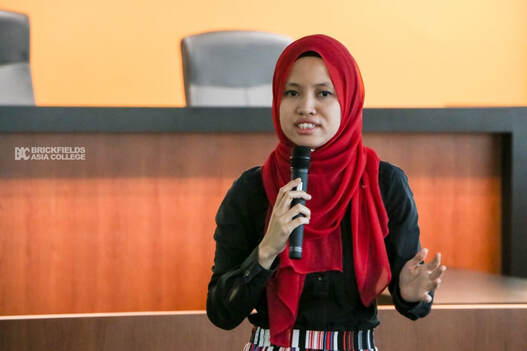
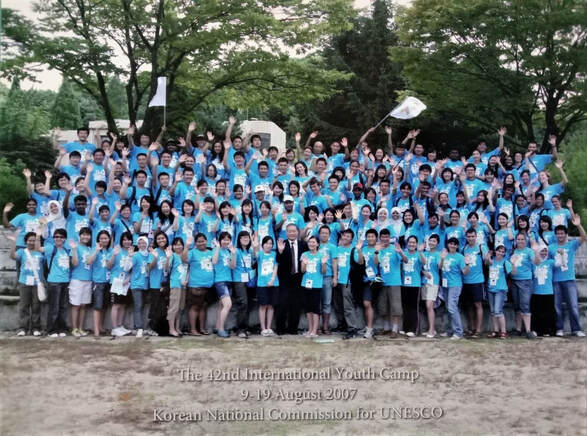
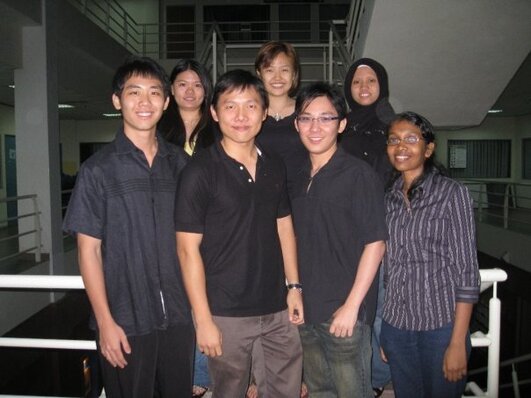
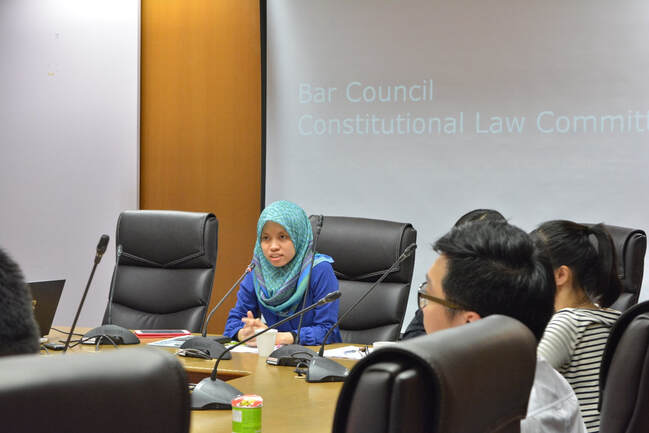
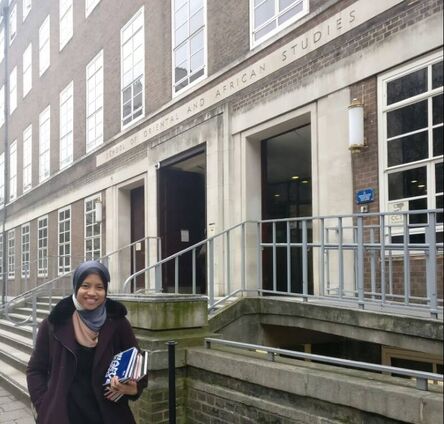
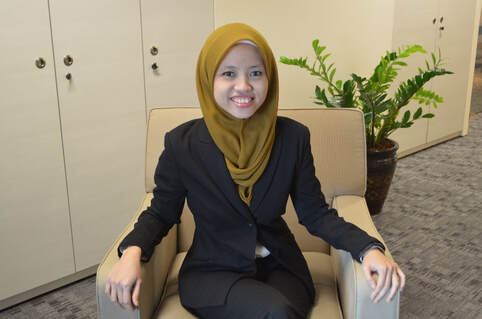
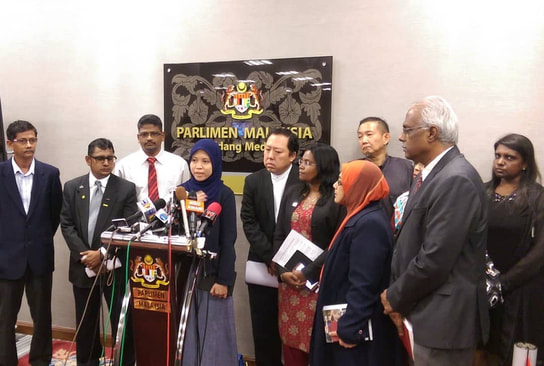
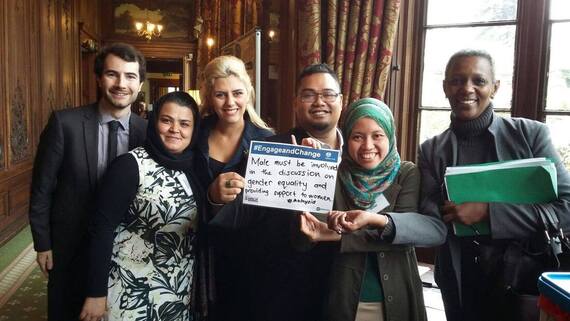
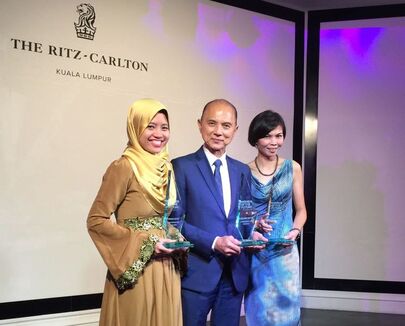
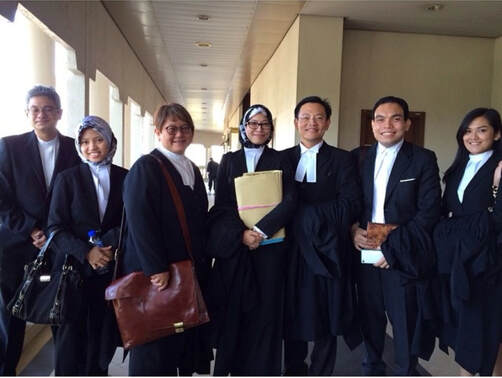
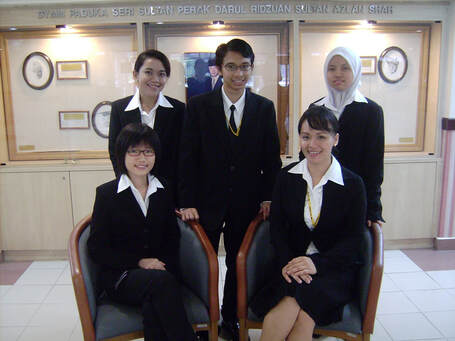
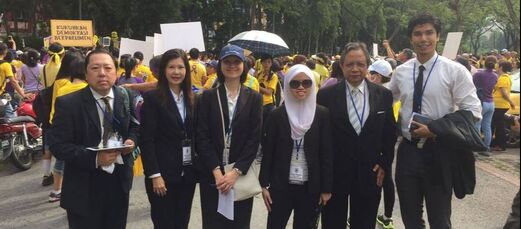
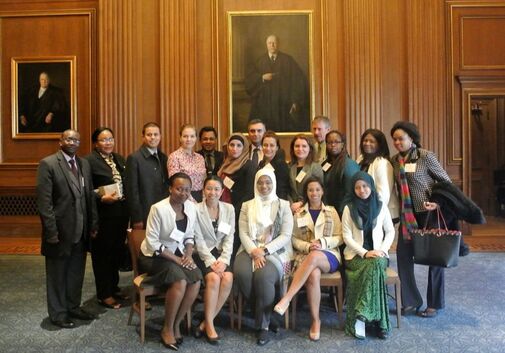
 RSS Feed
RSS Feed